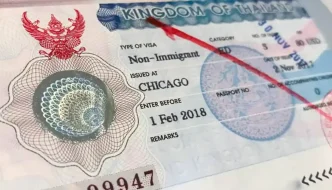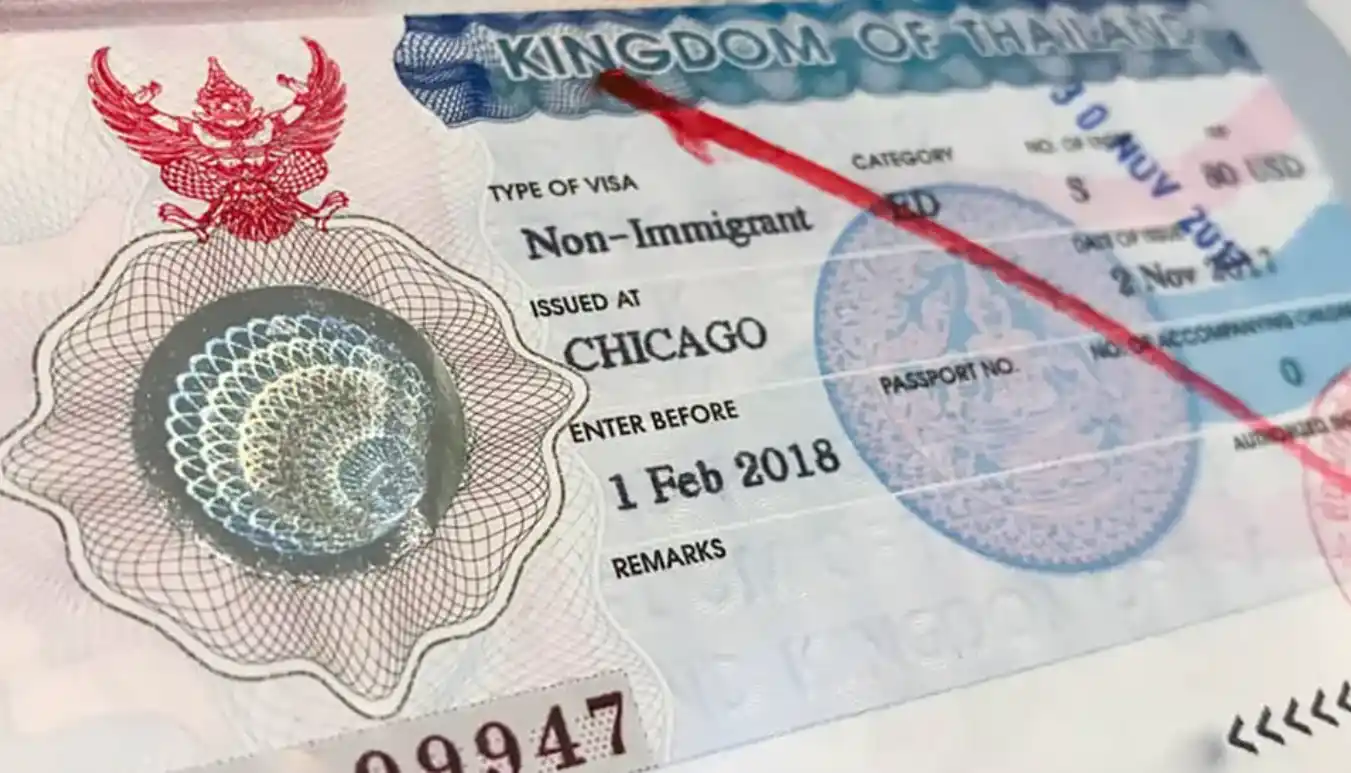In a significant move to address the misuse of student visas, Thailand’s Ministry of Higher Education, Science, Research, and Innovation has rolled out stringent new guidelines aimed at preventing foreign nationals from entering the country under the pretext of education while engaging in illegal work. Announced on May 25, 2025, by Deputy Government Spokesperson Kharom Polpornklang, the policy underscores Thailand’s determination to maintain the integrity of its education system and bolster its reputation as a credible hub for international students.
New Guidelines to Ensure Compliance
The newly issued “Criteria and Operational Guidelines for Non-Degree Short-Term Programs for International Students at Higher Education Institutions, 2025,” effective from May 14, 2025, sets a comprehensive framework for institutions offering short-term programs. These programs, often attractive to foreign nationals seeking temporary stays in Thailand, will now be subject to rigorous oversight to ensure they serve genuine educational purposes.
Under the guidelines, higher education institutions must demonstrate expertise in the subject matter, readiness to deliver instruction, and clearly defined learning outcomes. They are required to submit detailed course information to the Office of the Permanent Secretary, covering aspects such as course titles, objectives, teaching methods, and evaluation criteria. A key stipulation mandates that at least 60% of instruction must be conducted on-site, with online learning limited to 40%, ensuring students are physically present and engaged in academic activities.
Additionally, programs are capped at a maximum duration of 180 days per course, with institutions obligated to issue official letters certifying students’ enrollment in legitimate academic activities. These letters allow international students to remain in Thailand temporarily for study purposes, with each stay not exceeding the 180-day limit. Institutions must also verify students’ academic histories, particularly if they have previously enrolled in similar short-term programs elsewhere in the country.
Enhanced Monitoring and Reporting
The guidelines introduce robust monitoring mechanisms to track student attendance and progress. Host institutions are required to report student information to the Office of the Permanent Secretary within 30 days of immigration authorities granting permission for a stay. This includes submitting monthly progress reports through a centralized student monitoring system, detailing currently enrolled students, withdrawals, and completions.
Failure to adhere to these guidelines could result in severe consequences for institutions. The Office of the Permanent Secretary reserves the right to notify an institution’s governing council of non-compliance and may recommend the termination of offending programs. This measure reflects the government’s commitment to enforcing accountability and transparency within the education sector.
Deputy Spokesperson Kharom emphasized the importance of these measures in maintaining the quality of Thailand’s education offerings. “This will help build international trust in Thai higher education” he said, highlighting the dual aim of preventing visa misuse while attracting genuine foreign students to the country.
Addressing a Growing Concern
The introduction of these guidelines comes amid growing concerns over the misuse of student visas by foreign nationals. Reports have surfaced in recent years of individuals entering Thailand on education visas, only to engage in unauthorized employment or other activities unrelated to their stated purpose of stay. This has raised questions about the effectiveness of existing immigration and education policies in curbing such practices.
Thailand, long a popular destination for international students due to its affordable programs and cultural appeal, has seen a steady influx of foreign nationals enrolling in short-term courses. While many are genuine students, authorities have noted instances where visas are exploited as a loophole for extended stays or illegal work. The new policy aims to close these gaps by ensuring that only bona fide students benefit from educational entry schemes.
The collaboration between the Ministry of Higher Education and the Immigration Bureau is a critical component of this initiative. By aligning their efforts, the two bodies seek to create a seamless system where student visa applications are thoroughly vetted, and institutions are held accountable for the authenticity of their programs. This partnership also signals a broader push by the Thai government to strengthen immigration controls without deterring legitimate international students.
Impact on Thailand’s Education Sector
The implications of the new guidelines extend beyond immigration control, potentially reshaping Thailand’s higher education landscape. Institutions offering short-term programs may face increased administrative burdens due to the detailed reporting and monitoring requirements. Smaller or less-resourced institutions, in particular, could struggle to meet the stringent criteria, potentially leading to a consolidation of programs among larger, better-equipped universities.
On the other hand, the policy could enhance the credibility of Thai education on the global stage. By weeding out dubious programs and ensuring high standards, Thailand may attract more serious students and academic partnerships. This aligns with the government’s broader vision of positioning the country as a regional hub for education and innovation, competing with neighbors like Singapore and Malaysia.
However, some education experts caution that overly restrictive measures could deter prospective students, particularly those from neighboring countries who rely on short-term programs for skill development. Balancing enforcement with accessibility will be crucial to maintaining Thailand’s appeal as an education destination. If the guidelines are perceived as too cumbersome, they might inadvertently drive students to other countries with more lenient policies.
Public and International Reactions
Public sentiment within Thailand appears mixed. While many citizens support efforts to curb illegal work and strengthen immigration controls, others worry about the potential impact on local economies that benefit from foreign students’ spending. In cities like Bangkok and Chiang Mai, where international students contribute to local businesses, any decline in enrollment could have a ripple effect on sectors such as housing and hospitality.
Internationally, the response from sending countries—those whose citizens frequently enroll in Thai programs—remains to be seen. Nations like Myanmar, Laos, and Cambodia, which account for a significant portion of short-term students in Thailand, may seek clarification on how the guidelines will affect their nationals. Diplomatic discussions could emerge if the policy is seen as disproportionately affecting certain groups or creating barriers to education access.
Moreover, the policy’s focus on transparency could set a precedent for other countries in the region grappling with similar issues. Thailand’s approach might inspire neighboring governments to adopt comparable measures, potentially leading to a regional shift toward stricter oversight of international student programs.
Broader Context of Immigration Policy
The new guidelines are part of a larger trend of tightening immigration policies in Thailand. Over the past decade, the government has introduced various measures to address overstays, illegal employment, and visa fraud. These efforts often target specific demographics or visa categories, with student visas now under particular scrutiny.
At the same time, Thailand faces the challenge of balancing security concerns with its reputation as a welcoming destination for tourists, expatriates, and students. The country’s economy heavily relies on foreign visitors, and overly stringent policies risk alienating those who contribute to its growth. The government’s ability to implement the new guidelines effectively—without discouraging genuine students—will be a key test of its policy-making finesse.
Another layer of complexity arises from regional dynamics. Thailand’s porous borders and proximity to conflict zones, such as parts of Myanmar, have long made immigration a sensitive issue. While the student visa guidelines are not directly tied to these geopolitical concerns, they reflect a broader push for control over who enters and remains in the country. If successful, this policy could pave the way for similar reforms in other visa categories.
Looking Ahead
As Thailand rolls out these new guidelines, the coming months will reveal their true impact on both the education sector and immigration patterns. Will the policy succeed in curbing illegal work without deterring genuine students? How will institutions adapt to the increased oversight, and what will this mean for Thailand’s standing as an education hub in Southeast Asia?
For now, the government appears resolute in its commitment to transparency and quality. Yet, as with any major policy shift, the devil lies in the details of implementation. Stakeholders—from university administrators to international students—will be watching closely to see whether these measures strike the right balance between enforcement and opportunity.















